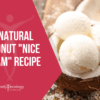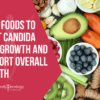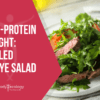A Diet Rich in Vitamin K & Probiotics Helps You Today and Tomorrow

Consuming a diet full of raw cultured vegetables boosts your probiotic and Vitamin K intake, strengthening your bones and liver function.
We all know the importance of getting our daily vitamin intake, especially the super antioxidants Vitamin A and C, but we can’t forget the value in every other vitamin and mineral, including the powerful Vitamin K.
Vitamin K is a fat-soluble vitamin that offers a variety of desirable benefits, including encouraging urine flow, relieving menstrual cramps, increasing overall vitality, and enhancing liver function.
Vitamin K is essential in supporting the healing process and may also play a key role in strengthening the bones of the elderly and protecting against osteoporosis.1
Additionally, there continues to be emerging proof of Vitamin K’s benefits in improving cardiovascular and joint health and reducing the risk of prostate cancer.
There are two types of Vitamin K:
- Vitamin K1, phylloquinone, which is produced from plants and found in nutrient-rich kale, collards, romaine lettuce, spinach, and broccoli.
- Vitamin K2, menaquinone-n, is sourced from animal meat and fermented foods and drinks. Vitamin K2 is synthesized in your intestines by microflora (probiotics).
Your body is not able to store Vitamin K, so it relies on a consistent dietary intake; without such intake, your body is at risk for negative consequences. The recommended allowance is 60-80 mcg per day.
In order to achieve your optimal levels of Vitamin K, you need to consume both Vitamin K1 (lots of green leafy vegetables) and Vitamin K2 (a diet rich in probiotics).
Both forms of vitamin K are essential in maintaining a healthy inner ecosystem, containing beneficial microflora, which flourish in your intestines and keep your immunity strong, protecting you against disease and illness.2
Achieving your daily intake goals of Vitamin K should not be a struggle. There are easy ways to guarantee that your body doesn’t go without this essential element. As an added incentive to consume as much Vitamin K as possible, probiotics can fulfill a large portion of your body’s Vitamin K needs and assist in strengthening your bones and increasing your overall health and vitality.
The benefits of probiotics are overwhelming; they support the inside of your intestines so that all the good bacteria and yeast keep the bad bacteria and yeast in check, preventing illness and disease. Fermented foods and drinks maintain this optimal balance so that our inner ecosystem can function at its highest ability.
With all of these numerous benefits and the importance of achieving your daily Vitamin K intake, the Body Ecology Diet and consumption of probiotics should become a regular routine in your healthy lifestyle.
The number one source of probiotics is consuming fermented foods and drinks, as they increase the balance in your inner ecosystem, boosting your immunity and overall strength. Probiotic foods contain astonishingly more good bacteria when compared to probiotic supplements.
The following foods and drinks are prime examples of perfect additions to your diet:
- Young Coconut Kefir: An easy, do-it-yourself fermented drink, which has a high mineral content. This drink offers a simple way to stay slim and detox your liver from the heavy metals that we are consistently bombarded with during our daily lives.
- Coco-Biotic: A great on-the-go drink that tastes almost too good to be true; it is incredibly beneficial for your body. No matter how busy your schedule, you can still guarantee your body will receive its essentials as you go about your daily activities.
- Raw vegetables: Consume these simple, pure superpower vegetables at every meal. Body Ecology has many easy, delicious recipes to make the process of eating these super foods enjoyable and trouble-free.
To further strengthen your bones and reduce the risk of osteoporosis, it is recommended that you follow the Body Ecology Diet, and reduce – if not completely eliminate – sugar, as it deprives your body of minerals, which unfortunately, many Americans are already lacking. The USDA has reported that there is a 25-80% decline in the mineral content of the foods we eat.
Consuming less protein also helps protect against weak bones. High protein diets have a diuretic effect and acidify your blood, causing you to lose calcium and magnesium. Instead, follow the 80/20 rule, where 20% of each meal is protein, and the other 80% is made up of vegetables. This rule alone will provide necessary protection to strengthen your bones, immunity, and overall vitality and energy.
By sticking to a diet rich in vegetables and fermented foods and drinks to provide your inner ecosystem with healthy probiotics and a consistent level of Vitamin K, you will maintain the best possible health within to exude high energy and immunity, no matter what your age! When you make these habits a daily practice, you will strengthen yourself for the future and continue to reduce your risk for disease.
Sources:
- “Vitamin K helps strengthen bones” Food Consumer. 27 May 2009. Web. 4 Oct 2010.
- “Probiotics bacteria help the body to produce vitamin K and improve the digestive tract” Diet Health Club. 2010. Web. 4 Oct 2010.








